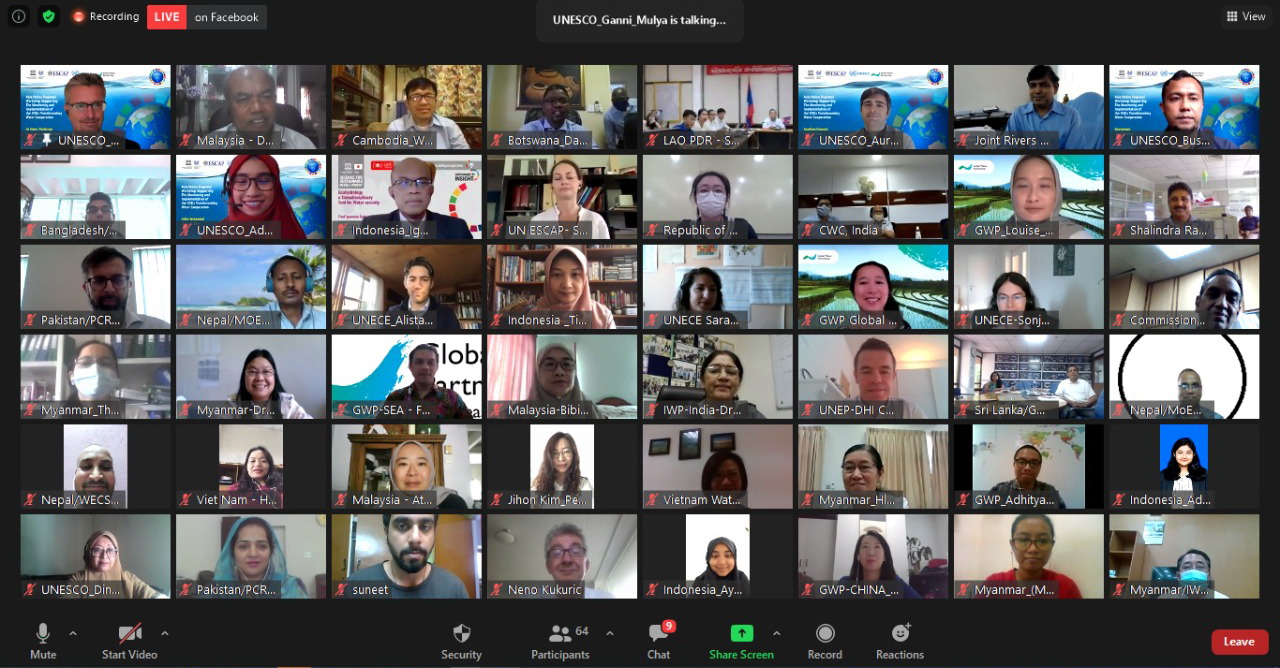The Asia Online Regional Workshop Supporting the Monitoring and Implementation of the SDGs Transboundary Water Cooperation SDG 6 Indicator 6.5.2 successfully held on 17 September 2020. Co-organized by the UN ESCAP, UNESCO Global office and Asia Pacific Office, GWP Global and regional Southeast Asia office, IHP, and UNECE, the workshop engaged 64 participants representing Southeast Asia, South Asia, East Asia, and Central Asia.
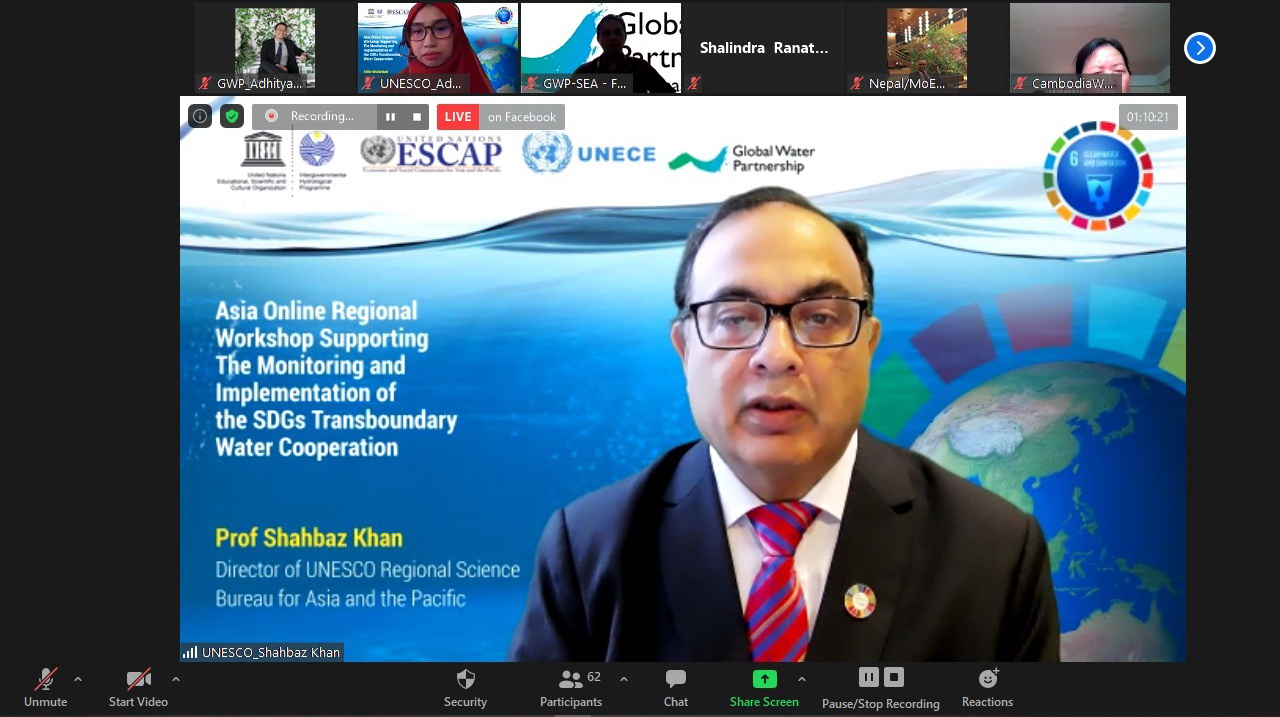
Photo 1. Prof. Shahbaz Khan, the Director of Unesco Jakarta Office, Regional Science Bureau for Asia and the Pacific
The workshop was officially started by the UNESCO Jakarta Office Director, Prof. Shahbaz Khan’s opening remarks who welcomed all the organizers and the water experts from relevant ministries. He conveyed a message, “We need to look at transboundary water cooperation in a bigger context as we are now in a difficult period of our lives with COVID-19 and the importance of water, in particular, the access to water and sanitation has never been more important”. He added, “Water is critical for dealing with this pandemic, water is critical for achieving all the 16 SDGs and the number 17 which is about international cooperation, is the heart of bringing all the participants together from within the region and from another region”. He was very pleased to see the contribution from other regions on how their knowledge will enrich our understanding of identifying the baseline from the transboundary water cooperation and how it fits the Integrated Water Resources Management. In his speech, Prof. Shahbaz Khan also told us that the participants will learn the key challenges from managing both the surface water and groundwater in the context of floods, droughts, or water quality challenges we need to promote a better understanding of how to make better cooperation across a border. In his closing remarks, he argued that water can help create peace and cooperation across the border, and it can help us to achieve all the 17 SDGs indicators by 2030.
Ms. Sonja Koeppel of UNECE opened the first session of ‘setting the scene: SDG 6 and transboundary water cooperation’ by sharing the rationale behind the workshop and its main objectives. On the rationale side, she emphasized the importance of effective transboundary collaboration to achieve the overall SDG 6 indicator. She added, “the transboundary water cooperation is crucial for any other SDG indicator such as peace, health, food, energy, climate change”. On the overall objective, the workshop was held to support countries in the region in reporting the SDG 6.5.2 in 2020 by introducing the methodology for calculation of the value indicator, highlighted good practices and discussed implementation challenges, discussed gaps of data in particular concerning aquifers, identified synergies between reporting on SDG indicator 6.5.2 and SDG indicator 6.5.1, and how all of these can improve transboundary cooperation by 2030. This session was followed by the introduction of the workshop agenda by Mr. Hans Thulstrup of the UNESCO Jakarta Office/ Regional Office for the Asia Pacific.
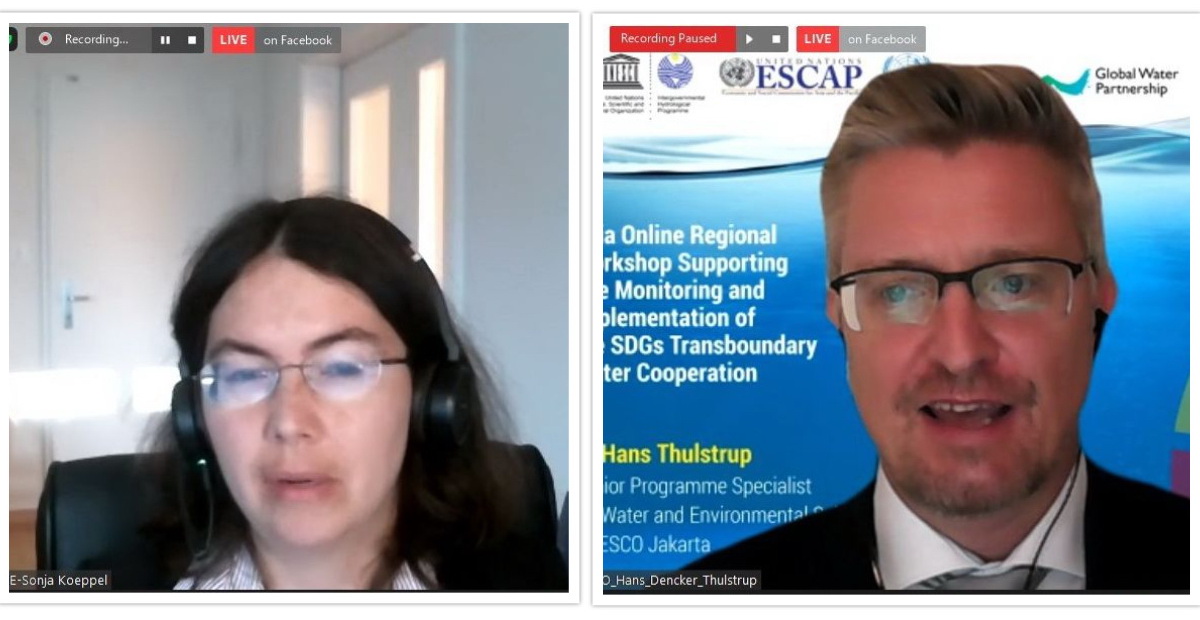
Photo 2. Ms. Sonja Koeppel of UNECE (left) and Mr. Hans Thulstrup of the UNESCO Jakarta Office (right) opened the first session
The session was then followed by the introduction for the 2020 SDG 6.5.2 data collection by Aurélien Dumont – UNESCO Headquarter Office. He presented the overview of SDG indicator 6.5.2 and integrated monitoring of SDG 6, the result of the baseline exercise in 2017-2018, the availability of guidance documents for national reports, as well as tips and advice for organizing reports and filling the questionnaire.
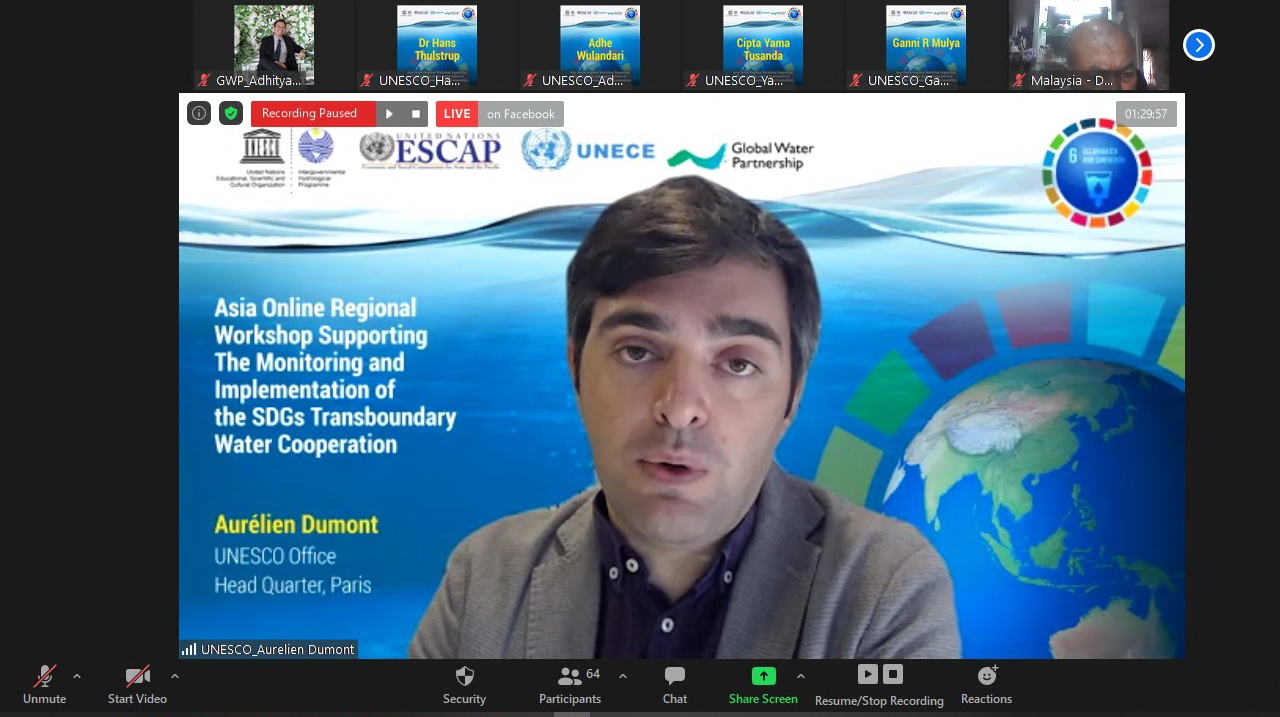
Photo 3. Introduction for the 2020 SDG 6.5.2 data collection by Aurélien Dumont – UNESCO Headquarter Office
Ms. Solene Ledoze from UN ESCAP continued the session by sharing the reporting on SDG 6 in Asia and the Pacific. She explained the UN ESCAP is involved in the regional follow-up and review of all SDGs, including SDG 6, through the Asia Pacific Forum on Sustainable Development. Besides, ESCAP facilitates the UN-Water regional coordination group on SDG 6 and supports monitoring as needed; maintains a regional SDG statistical database and supports capacity building for national statistical offices; and supports countries on their Voluntary National Reports on SDGs. She highlighted the issue of data management and strengthening SDG 6 monitoring at institutions and the country level. She underlined the progress of SDG 6.5.2 for transboundary water cooperation SDG in the region still encounter by a setback due to insufficient data. A few things to improve this situation are by identifying national focal points and ensuring effective coordination systems for monitoring at the national level to support a better decision-making process.
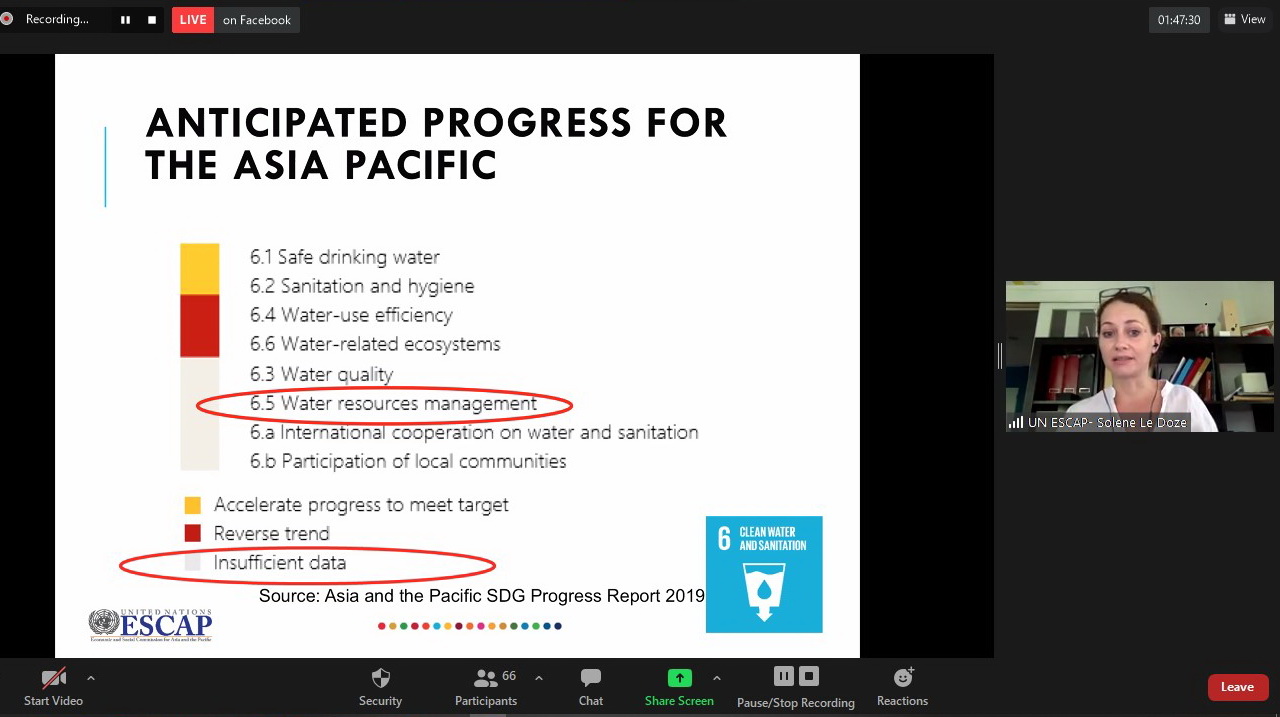
Photo 4. Ms. Solene Ledoze from UN ESCAP shared the reporting on SDG 6 in Asia and the Pacific and showed that the progress might be slowed down due to insufficient data
Alistair Rieu-Clarke, UNECE consultant & Northumbria University shared an overview of the most common difficulties in completing the National Reports. In his presentation, some of the challenges and difficulties by countries in submitting surface water reports were highlighted and focus on two areas: how do we calculate the area, and how do we determine water operational arrangements. In summary, the surface area of the basins should be calculated only for the part of the basin that is within the territory of the country and should not double count the main and sub-basin. As for the ‘operational arrangement’, he argued it could be in a formal commitment between the riparian parties in the form of a joint body or mechanism, regular formal communications between riparian states, joint or coordinated water management vision/ plan or similar instrument in place, and lastly regular exchange of data and information. The key here is to consider whether there has been some level of commitment to implement a particular strategy, policy, or plan under an agreement. For countries that have a transboundary aquifer, Aurélien Dumont – UNESCO underlined the importance of an adaptable process, by starting from a rough estimation of delineation and try to improve as the progress is made.
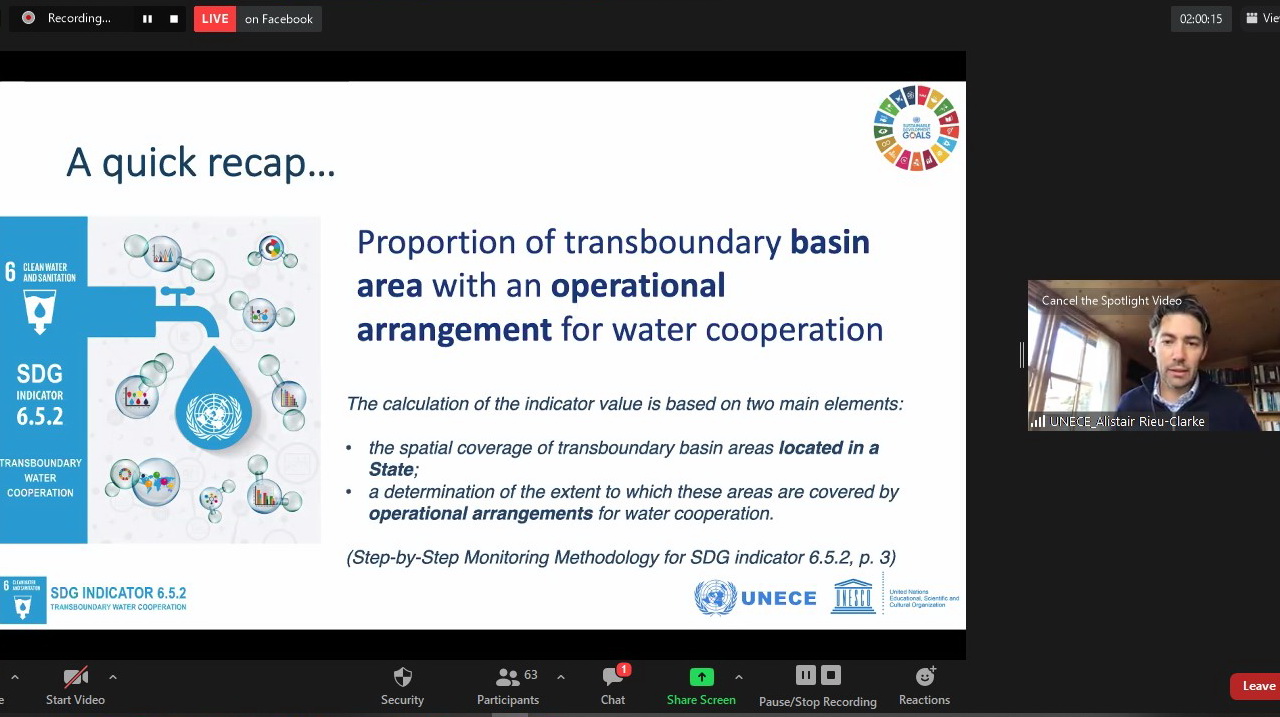
Photo 5. Alistair Rieu-Clarke, UNECE consultant & Northumbria University shared an overview of the most common difficulties in completing the National Reports
In session 2, countries in the region and other region shared their experiences in managing the SDG 6.5.2 national report. The purpose is to exchange on experiences from SDG 6.5.2 within Asian countries, and discuss challenges and opportunities, identify possible areas of improvement or collaboration in the future, and set a floor for interaction for participants with the organizers. Among these countries were: Cambodia, Lao PDR, Pakistan, Afghanistan, and Botswana. After series of presentation, the participants arranged in 3 groups to discuss three questions: 1) What are the common challenges and opportunities that you face in completing the 6.5.2 survey; 2) How can we help countries to complete the report in this remaining time of 2020; and How can neighboring countries collaborate while filling in the report.
In session 3, the group’s rapporteur reporting back on what had been discussed and followed by a plenary session, moderated by Alistair Rieu-Clarke. The last part of this session shared the next steps and closure of the meeting. Just before the closing, GWP’s Senior Network Officer for Asia and Transboundary Water Cooperation Specialist, Ms. Yumiko Yasuda, introduced the Massive Open Online Course (MOOC) “Governance for Transboundary Freshwater Security” that still on-going and encouraged the participants to enroll to this course. The details of the course can be read through this link. AW
